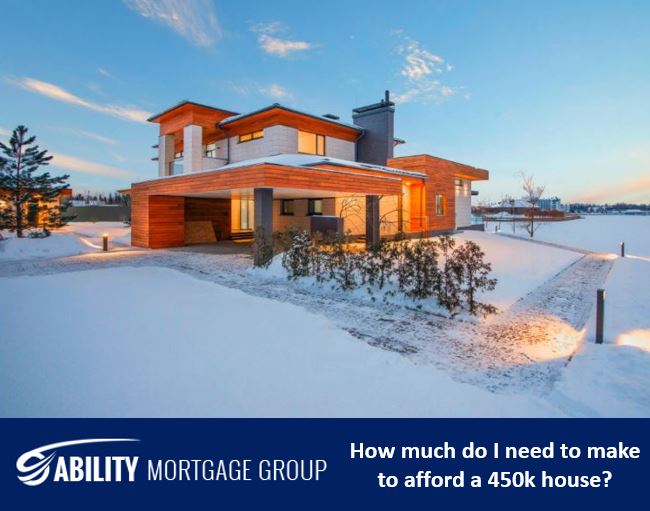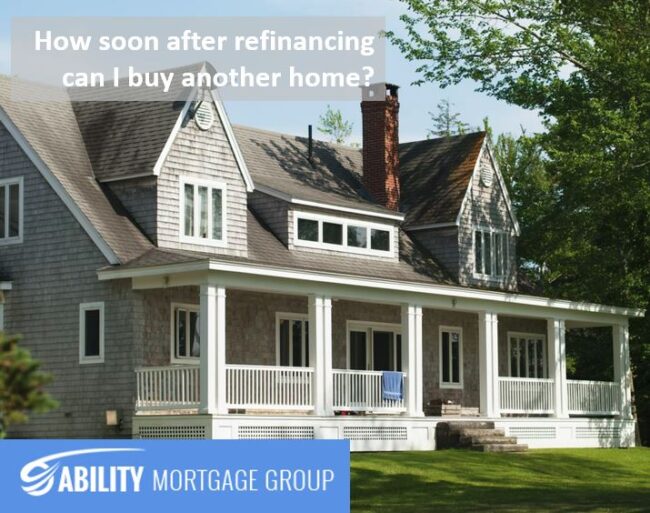What Is A VA Inspection?
A VA Inspection is something that the loan borrower must organize, and it entails a thorough examination of the property. You should know that the borrower-arranged inspection will include an in-depth check of the home, including the foundation, roof, electrical systems, and all crawlspaces.
Keep in mind that the inspection is not the appraisal.
The appraisal is a tool for your participating VA lender, while the inspection is a tool for the borrower. The inspection is for the borrower to make a completely educated decision about purchasing a piece of real estate and the condition of that real estate; the appraisal is for the borrower to make a fully informed decision about purchasing a piece of real estate and the condition of that real estate.
The standards for a VA loan in Maryland include a thorough examination of the home and its systems. These regions must comply with VA criteria as well as any applicable state or municipal construction codes or other legal requirements that may be unique (or not) to the housing market in which the home is located. These identical properties are referred to as “comparables” in the mortgage lending market, and they can play a significant role in determining the home’s value.
VA Inspection Requirements
The fundamental issues that can affect the property’s value or safety. These are generally big-ticket things that cause veterans and their families immediate or near-immediate hardship.
The VA Home Inspection Requirements Include:
1. Heat
The use of heat is a key component of these inspections. For the home, there must be an appropriate and efficient supply of heat. This implies that the heat must provide adequate and acceptable living conditions. If a wood-burning stove is the only source of heat in the house, it must be supplemented with an alternative system capable of maintaining a minimum of 50 degrees in the plumbing areas.
2. Windows
Broken windows will also be a big no-no for VA loan appraisers. Before the final report is published and/or the residence is approved, all broken windows must be properly repaired. This is because damaged windows not only increase the cost of heating, but they also invite burglary and give the property a bad reputation in the community. Buyers should be able to take satisfaction in their recent purchase, according to the VA.
3. Electricity
Electricity is another factor that VA lenders and homebuyers should consider. All homes must provide adequate illumination and must have the necessary equipment to do so
4. Roof Leaks
Inspectors for VA home loans will also look for any holes in the roof that could lead to leaks and other issues that can significantly harm and degrade a property’s quality. If you want to pass the VA loan inspection, make sure any holes in the roof are completely repaired.
Termite clearance will also be required by loan underwriters. Termites can prevent your property from qualifying for a VA loan. The home’s seller is required to provide section one termite clearance as well as, in many situations, section two termite clearance.
Further VA inspection requirements include:
Suitable in size for minimal living requirements
Water supply that is clean and consistent, as well as sanitary facilities
Paint that isn’t made with lead isn’t allowed.
Insects, fungus, and dry rot are not present.
sewage disposal that is both safe and sanitary
Accessible by a public or private street that is open all year.
Access to attics and crawl areas is required, as well as sufficient ventilation.
As a seller, it may be a contract contingency to go above and beyond by following the rules and performing the repairs outlined in section two of the termite report. In the event that a problem is discovered following inspection, any violations of these criteria may result in the house’s acceptance in the VA home loan programme being denied, as well as a full refund of the buyer’s deposit.
VA Inspection vs Home Inspection
They do sound as if they’re similar, a property inspection and a property appraisal. And yes, different individuals do in fact visit and inspect the property, but for two entirely different purposes. Let’s look at the purposes of each and how they affect a VA loan.
The first difference between a VA inspection and a VA appraisal is that an inspection is not a requirement for a VA loan. In fact, a property inspection isn’t a requirement on any home loan. Some states do require an inspection for termites and other wood-destroying insects, but a property inspection reviews “the bones” of the property.
An appraisal is required in order for most mortgage lenders in Columbia to make a loan approval. When a contract is agreed upon between a seller and a buyer, the sales contract is forwarded to the lender who then orders a property appraisal.
The appraisal’s duty is to determine the subject property’s current market value. Regardless of what the sales contract says, the VA lender will always use the lower of the sales price or appraised value when establishing a maximum loan amount.
An appraiser will physically visit the property as well as research information for similar homes in the area and compare their sales prices with the sales price of the unit. A VA lender wants to have a marketable property as well as make sure the home is sold for a reasonable price. If there is a variance of more than 10 percent in the sales price of area homes after all adjustments are made, the final sales price can be lowered.
In summary, the property inspection evaluates the property’s physical condition while the property appraisal helps establish the current market value.
VA Minimum Property Requirements 2022
However, VA appraisals demand additional information that is not required for other loan types. The VA has a set of minimal property requirements (MPRs) that the appraiser must consider and provide in the appraisal report. What are some examples of MPRs?
The first criterion is that the property be residential rather than commercial, and that it be occupied by the borrower. The property must also have suitable living accommodations, including a working kitchen, bathroom, and bedrooms, according to the appraiser.
Electrical and plumbing systems, as well as a working heating system and hot water, must all be in good working order. The roof is also assessed according to VA guidelines, and unlike other appraisal types, if the assessor discovers more than three layers of shingles on the roof, the entire roof must be replaced.
The VA appraiser will also note whether there are any dangerous items on the property and if the structure displays no symptoms of poor workmanship or neglect, such as a cracked foundation or a moist basement. If the home was built before 1978, it must be tested for lead-based paint and, if detected, the offending paint must be removed or covered with drywall or other permanent fix, much like other government-backed loans. The VA assessment is more thorough than other evaluations, such as those for conventional loans approved by Fannie Mae or Freddie Mac. In fact, the rigour of a VA appraisal combined with a property inspection has prevented potential VA borrowers from purchasing properties that are in poor condition. The measures are in place to protect the borrower, not to simply end a sales contract.
VA Home Loan Appraisal Requirements
The VA first checks to see if the home has basic property access. It must be reachable by a public or private street with an all-weather surface. You must be able to get to it without trespassing on other people’s property. There must also be enough space surrounding the unit to allow for any necessary exterior wall repairs.
They will also take into account the property’s features. It must be mostly residential, with non-residential uses limited to 25% of the total area. The sanitary facilities must function well and provide adequate living and sleeping areas. There must be sufficient amenities for you to cook and dine comfortably. You must be able to demonstrate that your drinking water is safe. If your new home has a private well, you will need to conduct additional testing to ensure that you meet this requirement. Any peeling or flaking paint will raise concerns regarding lead paint if the house was built before 1978. The issue areas will need to be scraped down and repainted, or drywall will need to be erected to conceal them.
VA Inspection FAQ
How Much Does a VA Home Inspection Cost?
Request a sample inspection report to assist you in making your selection. That will give you a sense of their level of diligence. Also, double-check the price. The cost of a basic home inspection should be between $300 and $500. This charge is not covered by the VA because it is an optional service chosen by you, the buyer. However, being accountable for this charge benefits you because the house inspector should be working on your favor. It’s also a good idea to be on the property for the inspection once you’ve made your pick. It will not only allow you to keep an eye on things, but it will also allow you to acquire a professional opinion on the property you are going to buy.
What will cause a VA inspection to fail?
During the examination, they’ll look for any signs of wear and tear, as well as any flaws that could lead the system to fail soon after the sale. The house will fail the inspection if the system is unable to heat the house to at least 50 degrees Fahrenheit without difficulty throughout the winter.
Is it hard to pass a VA home inspection?
Fixer-uppers may be excluded from VA home evaluation rules due to their strictness. For military buyers contemplating older properties in need of remodelling, many of the requirements might be confusing. If a property fails to meet the MPRs, the buyer must decide how to proceed.
Does VA require a septic inspection?
You’ll need to get your septic system evaluated if your home is connected to a septic system rather than city sewer. The tank should be in good working order, and the leach field should not be compacted and should drain adequately.
Are VA home Inspectors picky?
The inspector will physically crawl from basement to attic looking for potential issues, and if anything has to be addressed, it will be noted in the inspection report.
For more information contact Ability Mortgage Group to get your VA loan started on the right path.[/vc_column_text][/vc_column][/vc_row]






